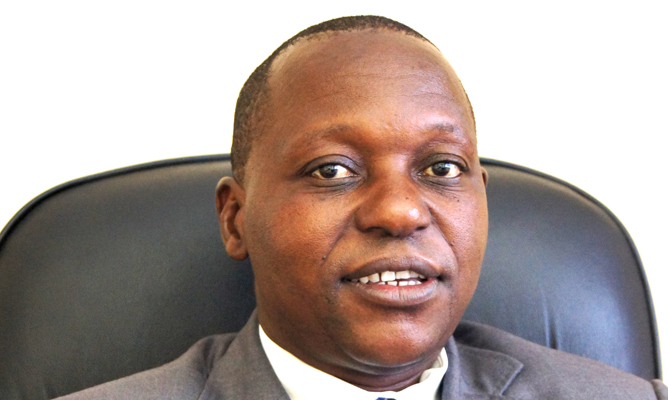
Guest Column: John Makamure
The Zimbabwe Parliament recently scored big by ratifying two important agreements namely: The African Continental Free Trade Area (AfCFTA) and the African Charter on Democracy, Elections and Governance.
The two agreements were last year signed by President Emmerson Mnangagwa after largely being ignored by the previous administration despite their critical importance to Zimbabwe’s economic and political reform agendas.
The main objective of the AfCFTA is to create a single continental market for goods and services, with free movement of persons and investments, and thus pave the way for accelerating the establishment of the Customs Union.
The AfCFTA is also expected to enhance competitiveness at industry and enterprise levels through exploitation of opportunities for large-scale production, continental market access and better re-allocation of resources.
With a market of close to 1.3 billion people which is expected to grow to 1,7 billion by 2030, gross domestic product (GDP) of US$3,4 trillion and intra-African trade is expected to be boosted by 53% through the elimination of tariff and non-tariff barriers, certainly the AfCFTA is one of the flagship projects that must be given priority.
Ten Year Implementation Plan of the African Union under Agenda 2063 – The Africa We Want. A minimum of 22 ratifications are needed for the agreement to come into force. So far, 16 countries have ratified and deposited the instruments of ratification. Six more countries are at an advanced stage of ratification.
The African Charter on Democracy, Elections and Governance came into force in 2012 after ratification by the minimum 15 African Union member states.
- Chamisa under fire over US$120K donation
- Mavhunga puts DeMbare into Chibuku quarterfinals
- Pension funds bet on Cabora Bassa oilfields
- Councils defy govt fire tender directive
Keep Reading
The objectives of the charter include, among others: The adherence to the universal values and principles of democracy and respect for human rights; promoting the holding of regular free and fair elections to institutionalise legitimate authority of representative government as well as democratic change of governments; promotion and protection of the independence of the judiciary; building and strengthening governance institutions and inculcating political pluralism and tolerance; promoting the fight against corruption in conformity with the provisions of the AU convention on preventing and combating corruption; promoting the establishment of the necessary conditions to foster citizen participation, transparency, access to information, freedom of the Press and accountability in the management of public affairs; promoting gender balance and equality in governance and development processes and promoting best practices in the management of elections for purposes of political stability and good governance. The ratification of the charter is timeous in that its principles can now feed into the current electoral reform process in Zimbabwe.
One other important agreement that Parliament must immediately ratify is the Common Market for Eastern and Southern Africa-East African Community-Southern Africa Development Community Tripartite Free Trade Area (Comesa-EAC-Sadc TFTA). The TFTA came into being in 2006 to assist in the process of harmonising programmes and policies within and between the three regional economic communities of Comesa, EAC and Sadc, and to advance African regional economic integration.
The three main pillars of the tripartite strategy are market integration, infrastructure development and industrial development.
Officially launched on June 10, 2015 in Sharm El Sheik, Egypt, the specific objectives of the TFTA are to progressively eliminate tariff and non-tariff barriers to trade in goods, liberalise trade in services, co-operate on customs matters and implement trade facilitation measures, establish and promote cooperation in all trade-related areas among tripartite member statess and to establish and maintain an institutional framework for the implementation and administration of the TFTA.
Zimbabwe is one of the 26 member statess that appended its signature to the agreement. However, Parliament is still to ratify it. In fact, the slow pace of ratification by member states is appalling. Only four have so far ratified.
The TFTA can only come into force once ratified by at least 14 member states.
A few statistics are instructive as to why member states have to ratify the TFTA. The 26 member states will have a combined population of 625 million people and a combined GDP of USD1,3 trillion. The member states also account for almost half the membership of the AU, and 60% of the continent`s GDP. The total land mass of the countries that make up the tripartite region is 17,3 million square kilometres, which is the size of China and has a population that is twice that of the tripartite.
Regional economic communities such as Comesa, Sadc and EAC are considered as the building blocks of African integration efforts. So it defies logic that countries can ratify the AfCFTA and ignore the TFTA, which is supposed to be the foundation for African free-trade and industrialisation.
The TFTA is supported by other important strategies or protocols such as the Comesa industrialisation strategy. The recent adoption of the industrialisation strategy (2017–2026) is a significant milestone. Taking cognisance of industrial development’s cardinal role in boosting Africa’s development, Comesa feels that it is now time to put it at the forefront of the regional integration agenda more than before. The much talked about Sustainable Development Goals cannot be easily attained without a vibrant and inclusive industrialisation of the region.
The industrialisation strategy is in sync with the concerted efforts by government to attract domestic and foreign direct investment. It is therefore in the interest of the country to quickly ratify such important agreements and protocols in order to give impetus to the economic revival agenda.
We, therefore, expect Parliament to urgently engage the ministries of Industry and Commerce and International Trade in order for the TFTA and supporting strategies such as the Comesa Industrialisation Strategy to be ratified.
More importantly, after ratification, the agreements have to be implemented.
Parliament has an important duty to provide oversight on the implementation in order for such important commitments not to gather dust.
John Makamure is the executive director of the Southern African Parliamentary Support Trust. He writes in his personal capacity.











